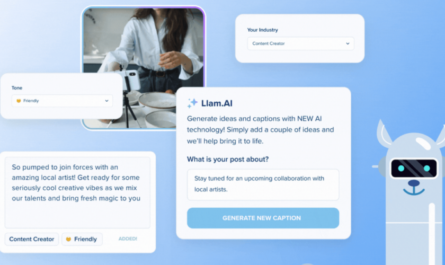Artificial Intelligence (AI) has rapidly evolved to become an integral part of various industries, revolutionizing the way we work, communicate, and live. However, the benefits of AI come with the responsibility to ensure that its implementation remains free from bias. Biased AI systems can perpetuate and exacerbate societal inequalities, leading to unintended consequences. In this article, we will explore strategies to keep AI implementation unbiased, fostering a fair and inclusive technological landscape.
Understanding AI Bias
Before delving into strategies, it’s crucial to understand the nature of AI bias. Bias in AI systems often stems from biased training data, where the algorithms learn patterns from historical data that may reflect societal prejudices. Additionally, bias can be introduced during the design and development phases, influenced by the perspectives and values of the individuals creating the algorithms.
Strategies for Unbiased AI Implementation
Diverse and Representative Data Collection
One of the primary sources of bias in AI is skewed training data. To mitigate this, organizations must prioritize diverse and representative datasets. By including data from various demographic groups, geographic locations, and socioeconomic backgrounds, AI models are more likely to learn unbiased patterns.
Regular Data Audits
Continuous monitoring and auditing of training data can help identify and rectify biases that may emerge over time. Implementing a robust data audit system ensures that biases are addressed promptly, reducing the risk of biased outcomes in AI applications.
Ethical AI Guidelines and Frameworks
Establishing clear ethical guidelines for AI development is essential. Companies should adopt and adhere to ethical frameworks that prioritize fairness, transparency, and accountability. This includes establishing guidelines for data collection, algorithmic decision-making, and the overall deployment of AI systems.
Diverse Development Teams
Creating diverse and inclusive teams of AI developers is critical in preventing biases in the design and development phases. Diverse teams bring a variety of perspectives, reducing the likelihood of unintentional bias in algorithms. Organizations should actively promote diversity and inclusion in their AI development teams.
Explainability and Transparency
The black-box nature of some AI models contributes to concerns about bias. Implementing explainable AI (XAI) techniques ensures that AI systems provide transparent explanations for their decisions. This transparency allows users to understand and, if necessary, contest the outcomes of AI applications.
Continuous Education and Training
AI technologies evolve rapidly, and keeping development teams updated on the latest advancements and ethical considerations is crucial. Continuous education and training programs help developers stay informed about potential biases and equip them with the tools to address these issues proactively.
User Feedback Integration
Incorporating user feedback into the AI development lifecycle helps identify biases that may not be immediately apparent. Users, especially those from diverse backgrounds, can provide valuable insights into potential biases or unintended consequences of AI applications in real-world scenarios.
Regular Bias Testing
Conducting regular bias testing on AI models is a proactive measure to ensure fairness. This involves simulating various scenarios and assessing how the AI system responds. If biases are identified, adjustments can be made to the algorithm to enhance its fairness.
Collaboration with External Auditors
Engaging external auditors or third-party organizations specializing in AI ethics and fairness can provide an unbiased assessment of AI systems. External audits bring an additional layer of scrutiny, ensuring that organizations are held accountable for unbiased AI implementation.
Legal and Regulatory Compliance
Adherence to existing and emerging legal frameworks surrounding AI is essential. Organizations must stay informed about relevant regulations and proactively ensure that their AI systems comply with these standards. This includes data protection laws and regulations specific to AI ethics.
Conclusion
As AI continues to shape the future of technology, it is imperative to prioritize strategies that keep its implementation free from bias. By addressing bias at various stages of development, from data collection to deployment, organizations can build AI systems that contribute positively to society. The responsibility lies not only with developers and data scientists but also with policymakers, businesses, and users to collectively ensure a fair and inclusive AI landscape. As we navigate the evolving world of AI, the implementation of unbiased strategies will play a pivotal role in shaping a future where technology benefits all, without perpetuating existing societal inequalities.


